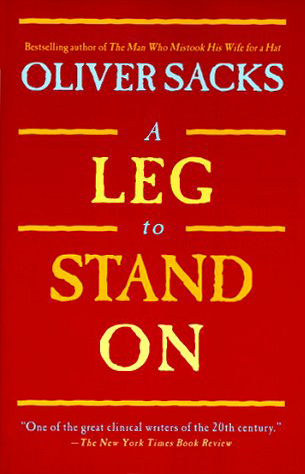It's hard to overestimate the impact of Oliver Sacks on the public's understanding of the brain, its disorders and our diversity as humans.
Sacks's wrote what he called 'romantic science'. Not romance in the sense of romantic love, but romantic in the sense of the romantic poets, who used narrative to describe the subtitles of human nature, often in contrast to the enlightenment values of quantification and rationalism.
In this light, romantic science would seem to be a contradiction, but Sacks used narrative and science not as opponents, but as complementary partners to illustrate new forms of human nature that many at the time found hard to see: in people with brain injury, in alterations or differences in experience and behaviour, or in seemingly minor changes in perception that had striking implications./.../
*************************************************
by Maria Popova
“I had no room now for this fear, or for any other fear, because I was filled to the brim with music.”

I was a relative latecomer to the work of
Oliver Sacks (July 9, 1933–August 30, 2015), that great enchanter of storytelling who spent his life bridging science and the human spirit — partly because I was not yet born when he first bewitched the reading public with his writing, and partly because those early books never made it past the Iron Curtain and into the Bulgaria of my childhood. It was only in my twenties, having made my way to America, that I fell in love with Dr. Sacks’s writing and the mind from which it sprang — a mind absolutely magnificent, buoyed by a full heart and a radiant spirit.
His intellectual elegance bowled me over, and I felt a strange kinship with many of his peculiarities, from the youthful affair with iron — although the 300-pound squats of my bodybuilding days paled before his 600 pounds, which set a state record and
earned him the moniker Dr. Squat — to our shared love of Beethoven and Mendelssohn.
Indeed, it was his uncommon insight into the role of music in the human experience that first drew me to Dr. Sacks’s writing. I landed into
Musicophiliaand soon devoured his older writings. Both his science and his life were undergirded by a profound reverence for music — music seemed to be this intellectual giant’s greatest form of spirituality. He knew that the life of the mind and the life of the body were one, and understood that music married the two — an understanding he carried in his synapses and his sinews.
To commemorate this irreplaceable man, I asked artist
Debbie Millman to create a piece of art illustrating the passage that captures not only the heart of
that heartening story, but the spirit in which Dr. Sacks inhabited and exited our world.
As the broken instrument of his body is buried motionless and mute into the earth, may the symphony of his spirit live on in his writing with the same eternally resounding vigor as what Dr. Sacks called “one of the world’s great musical treasures” in his
final communication with the world:
What a privilege for this world to have been graced with this extraordinary human animal and his fully embodied mind. The only thing left to say is what Dr. Sacks himself wrote to
his beloved aunt Lennie, who shaped his life, as she lay dying:
“Thank you, once again, and for the last time, for living — for being you.”
No comments:
Post a Comment